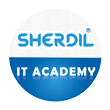You’re browsing AWS certification options and see the price: $150 for Associate level, $300 for Professional. That’s PKR 42,000 to PKR 84,000 just for the exam, not counting training costs. Your colleague says certifications are worth it. Your cousin says they’re just expensive paper. Online forums are full of conflicting opinions. So what’s the actual return on investment for cloud certifications in Pakistan’s job market? Let’s look at the numbers, not the hype.
Why Certifications Matter in Pakistan’s Job Market
Pakistan’s IT hiring landscape differs significantly from Western markets where portfolios and GitHub contributions often outweigh formal credentials. Here, certifications serve as crucial screening mechanisms that determine whether you get interviews in the first place.
Most Pakistani companies—especially those working with international clients—require certifications as baseline qualifications for cloud roles. This isn’t arbitrary gatekeeping. When bidding for projects with US or European clients, companies must demonstrate team credentials. AWS or Azure certifications on team profiles directly influence whether clients award contracts worth hundreds of thousands of dollars.
Recruitment processes at Pakistani software houses typically involve HR pre-screening before technical interviews. HR teams use certifications as objective filters when reviewing hundreds of applications. Without recognized credentials, your resume often gets filtered out regardless of actual skills or experience.
The P@SHA Skills Survey 2025 confirms this dynamic, showing that certified cloud professionals in Pakistan earn 22-35% higher salaries than non-certified peers with equivalent experience levels. This premium exists because certifications signal investment in professional development and validate skills through standardized assessments that employers trust.
International remote work opportunities—increasingly accessible to Pakistani IT professionals—almost universally require certifications. Companies hiring remotely across borders use certifications to assess candidates they can’t interview in person or verify through local networks. For Pakistanis targeting remote positions with US or European companies, certifications aren’t optional—they’re entry requirements.
Beyond hiring, certifications affect internal promotions and project assignments. Companies assign high-value client projects to certified team members, creating career advancement opportunities that non-certified colleagues miss. This compounds over time, making certifications increasingly valuable as your career progresses.
Market Salary Benchmarks
Pakistani cloud professionals’ compensation varies significantly based on certification status, experience level, and platform specialization. Here’s what current market data shows:
| Role | With Certification | Without Certification | Premium | Source |
|---|---|---|---|---|
| Cloud Engineer | PKR 260,000/month | PKR 180,000/month | 44% | Glassdoor Pakistan |
| AWS Engineer | PKR 280,000/month | PKR 200,000/month | 40% | Indeed Pakistan |
| DevOps Engineer | PKR 300,000/month | PKR 220,000/month | 36% | Rozee.pk |
| Azure Administrator | PKR 250,000/month | PKR 175,000/month | 43% | Market surveys |
| Senior Cloud Architect | PKR 450,000/month | PKR 320,000/month | 41% | Industry data |
These figures represent median salaries for professionals with 2-4 years of experience. Entry-level certified professionals typically start PKR 50,000-80,000 higher than non-certified peers, while senior positions show even larger absolute differences though similar percentage premiums.
The Flexera 2025 State of Cloud report provides global context, showing that certification premiums exist worldwide but are particularly pronounced in emerging markets like Pakistan where formal credentials carry more weight in hiring decisions.
Platform-specific patterns emerge from the data. AWS certifications command the highest premiums due to market dominance and enterprise adoption. Azure certifications show strong returns among professionals targeting corporate and government clients. Google Cloud certifications demonstrate growing value but remain less common in Pakistani job postings compared to AWS and Azure.
DevOps certifications combining cloud platforms with automation tools show the strongest ROI, reflecting acute shortages of professionals who understand both infrastructure and modern development practices. Companies desperate for DevOps talent often offer significantly above-market compensation to certified candidates.
ROI Calculation: Cost Versus Salary Uplift
Let’s calculate actual return on investment using real numbers from Pakistani professionals pursuing cloud certifications.
Investment Costs:
- AWS Solutions Architect Associate exam: PKR 42,000
- Training program (structured course): PKR 50,000-80,000
- Study materials and practice tests: PKR 10,000-15,000
- Total investment: PKR 102,000-137,000
Salary Impact:
- Pre-certification salary (mid-level engineer): PKR 180,000/month
- Post-certification salary (certified cloud engineer): PKR 260,000/month
- Monthly salary increase: PKR 80,000
- Annual salary increase: PKR 960,000
ROI Calculation:
- Investment payback period: 1.3-1.7 months of salary increase
- First-year net gain: PKR 823,000-858,000
- Five-year cumulative gain: PKR 4.7 million (assuming conservative 5% annual increases)
Even accounting for training costs beyond the exam fee, most Pakistani professionals recover their certification investment within two months of salary increases. The first year delivers 6-8x return on investment, with compounding benefits over subsequent years.
For professionals pursuing multiple certifications, the marginal cost of additional credentials decreases while salary premiums stack. An engineer with AWS Solutions Architect, Developer, and SysOps certifications commands significantly higher compensation than someone with just one certification.
This ROI assumes employment in corporate environments. For freelancers and consultants, certifications enable charging premium rates that deliver even faster payback. Certified consultants typically charge PKR 8,000-15,000 daily rates versus PKR 4,000-7,000 for non-certified consultants with similar experience.
The calculation becomes more compelling for early-career professionals. A fresh graduate investing PKR 130,000 in certification training can jump from PKR 50,000-60,000 entry-level salary to PKR 100,000-120,000 certified junior cloud engineer salary—a career-defining difference in first job compensation.
Case Spotlights: Real Pakistani Professional Outcomes
Theory is one thing; actual results from Pakistani professionals provide concrete evidence of certification impact.
Karachi AWS Success Story: A Dawn Tech feature from December 2024 profiled a Karachi-based software engineer who spent five years in traditional development roles earning PKR 150,000 monthly. After completing AWS Solutions Architect Associate and Developer certifications over six months, he received multiple offers from companies seeking certified cloud talent. He accepted a position paying PKR 280,000 monthly—nearly doubling his previous compensation. Beyond salary, the new role provided exposure to international projects and remote work options previously inaccessible without certifications.
Lahore DevOps Transformation: A TechJuice interview in 2025 documented a Lahore-based systems administrator’s career pivot. Working in traditional IT infrastructure earning PKR 200,000 monthly, she felt stuck as companies increasingly sought DevOps and cloud expertise. She enrolled in comprehensive DevOps and AWS training, earning three certifications over four months while working full-time. The investment paid off quickly—she moved to a DevOps architect role at PKR 350,000 monthly, a 75% increase. More importantly, she gained career mobility and skills relevant for the next decade of IT infrastructure evolution.
Both cases share patterns beyond simple salary increases. Certifications opened doors to roles with better career trajectories, exposure to modern technologies, and opportunities for continued professional growth. Neither professional regrets their certification investment, viewing it as career-defining decisions that repositioned them in Pakistan’s evolving IT market.
Risks and Limits: Certification Doesn’t Equal Instant Jobs
While data shows clear ROI for cloud certifications, it’s important to acknowledge limitations and set realistic expectations.
Certifications demonstrate knowledge but don’t replace hands-on experience. A freshly certified candidate with zero practical cloud experience will struggle against someone who’s actually built and maintained production systems, even without formal credentials. The ideal combination is practical experience plus certifications—credentials validate skills employers can already see in your portfolio.
The market is becoming more sophisticated. Five years ago, an AWS certification alone could land senior roles. Today, employers expect certifications plus GitHub projects, client references, and demonstrated problem-solving abilities. Certifications get you interviews; actual skills get you hired.
Some certifications show better ROI than others in Pakistani context. AWS and Azure certifications deliver proven returns. More specialized or niche certifications may not provide the same salary premiums simply because fewer Pakistani companies require them.
Timing matters for career stage. Entry-level professionals see dramatic relative gains from certifications—doubling or tripling interview callbacks. Senior professionals with established track records see more modest relative improvements, though absolute salary increases remain substantial.
The certification maintenance burden is real. Most cloud certifications require renewal every 2-3 years, meaning ongoing investment to maintain credential value. Budget for recertification costs when calculating long-term ROI.
Sherdil’s Training Pathways: Maximizing Your Certification ROI
Strategic training choices significantly impact both certification success rates and ultimate career ROI. Self-study works for some, but structured programs with accountability and mentorship typically deliver better outcomes.
The Multi-cloud Certification Program provides comprehensive preparation across AWS, Azure, and Google Cloud Platform, positioning you for the highest-paying roles requiring platform-agnostic expertise. This approach maximizes career flexibility while building deep cloud architecture knowledge.
Platform-specific programs like the AWS 3-in-1 Program, Azure Administrator track, and GCP 2-in-1 Program offer focused paths for professionals targeting specific platform expertise where job market demand concentrates.
For those pursuing the highest-ROI certifications, the DevOps Bootcamp combines cloud platforms with automation, CI/CD, and modern infrastructure practices—the exact skill combination commanding premium salaries in Pakistani and international markets.
The numbers show clear ROI for cloud certifications in Pakistan’s job market. Investment of PKR 100,000-140,000 typically returns 6-8x in the first year through salary increases and career opportunities. For motivated IT professionals willing to invest in their skills, certifications represent one of the highest-return professional development investments available.
Ready to invest in certifications that deliver measurable career ROI? Contact Sherdil advisors to discuss which certification pathway aligns with your current experience and career goals.

